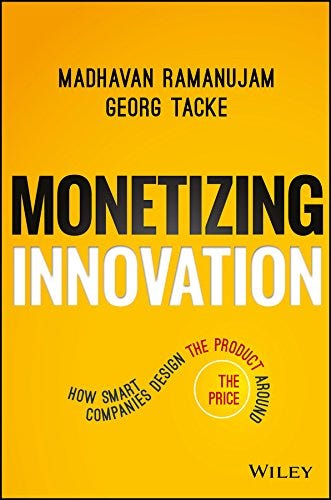Quick Bites 4/20/24
Evaluating AI Startups, Ninja Go to Market, Mindfulness and Breath, Advisor Equity
Evaluating AI Startups
AI powers nine out of ten startups raising financing at the moment. What will make them successful and sustainable?
I believe that successful companies in this space will create almost all their value in the low-tech aspects of their business, not their AI.
Startups working at the high-tech end of the food chain, such as fundamental breakthroughs or exploitations of cutting-edge AI, will be racing against the best-funded and staffed large companies. While 2 PhDs in machine learning may be able to come up with something Meta doesn’t, it’s a stretch to think they’ll be able to defend a moat and build a business made possible only by their tech advantage from that from scratch.
Even Google, Meta, Microsoft, Anthropic, Amazon, Oracle, etc. are cannibalizing one another in what is shaping up as a momentum play running into capex in the trillions of dollars (thanks Sam). Small fry startups don’t want to be swimming in the same water the leviathans are sucking in while they thrash around competing for survival and supremacy.
For everyone else, the kind of AI they use could be thought of as a flavor of electricity; an off-the-shelf commodity tech. What will make a company like that successful is the lower-tech end of the execution chain; focusing on a high-value, underserved target market without the chops and heft to package up someone else’s AI for internal use. A niche where the startup has a comparative advantage allowing the customer to focus on their bread and butter and outsource to a trusted source with strong branding, marketing, customer relations, and risk mitigation.
So, if I do X powered by AI, I need to make sure I’m known and trusted for X—my service, my branding, my specialization and dedication to my ICP—not my flavor of AI, with the particular AI kept behind the scenes. If I instead use my unique AI 'Y' to power X, I am at the mercy of every Google, Meta, Anthropic, Microsoft, Apple, and off-the-shelf GPT-4, each with hundreds of researchers working every day to blow past my homespun Y.
Instead of funding an AI PhD CEO and team with some amazing innovation (state of the art for the next 2-weeks and then someone shoots past it and a better and free tech supersedes it) and has found some problem it can address today which no one had known existed yesterday, I’d rather fund a company with a real, existing, well-defined, high-value, underserved problem which addressed by off-the-shelf AI, staffed by one competent AI Master's graduate and a top-notch team of marketers and salespeople expert in their ICP’s space.
Some examples of this pattern include Carta, Grammarly, and Shopify.
Advanced Go-to-Market, Product Development, and Pricing Conversations
If you are responsible for Product, Marketing, or Development, this book can change your life:
I recently did a super fun Boot Camp for startups in Japan with fellow advisors from Berkeley SkyDeck, including Pete Giordano who taught a masterclass on Go To Market, Pricing, Packaging, and how it ties into Product Development. Pete is a veteran of some amazing large companies, including a tour of duty running Product Marketing for Google Workspace.
His content draws from several books, including Monetizing Innovation, a book I wish I had discovered early in my career. It would have helped me be data-driven on product development and commercialization, instead of fumbling my way in the dark guided only by hunches and pre-conceptions.
The most valuable insights in it include:
Understanding customer’s Willingness to Pay: Have these conversations early!
Figuring out customer segmentation and making it as narrow as possible.
Understanding feature prioritization using MoSCoW or MaxDiff.
Understanding price elasticity to set prices optimally.
Structuring product development, packaging, and pricing model based on these learnings.
Mindfulness, Non-judgment, and Breathwork
A psychologist friend broke down Mindfulness in a way that was new to me.
Mindfulness is being in the moment and concentrating on the Now, counteracting many of our tendencies to focus on the Past, often leading to depression, or on the Future, causing Anxiety.
To remain in the Now, we must suppress judgment, which would pull us into the past—what should have been done differently—or into the future—what needs to change. Judging and choosing are necessary eventually, but extending the period of non-judgment gives us the space to get a clearer picture from many perspectives, rather than acting impetuously and considering only one, narrowly conceived side of the story.
The final piece of this practice is breathing. Deep breathing occupies our peripatetic mind and is a key to staying in the moment and remaining non-judgemental.
Here’s a cute video to help with breathwork. Let me know how this works out for you.
Advisor Equity Survey
One more thing, SkyDeck and I are still running a survey on Advisor Equity/Compensation to help us understand founder and advisor preferences and practices for compensation. Please help us by participating in the survey, and repost liberally so we get as significant coverage as we can.
In the next few weeks, I’ll report here on the results and best practices we learn from that survey.
Marc Meyer is a Silicon Valley technologist, founder (6 startups, 4 exits, 1 IPO), engineer, executive, investor, advisor, teacher, and coach. He has invested in and advised over 200 companies. He advises and works with accelerators and funds including Alchemist, 500 Startups, HBS Alumni Angels, and Berkeley SkyDeck, where he chairs the Advisor Council. He has an Executive Coaching and Advising practice helping leaders achieve their greatest potential.



